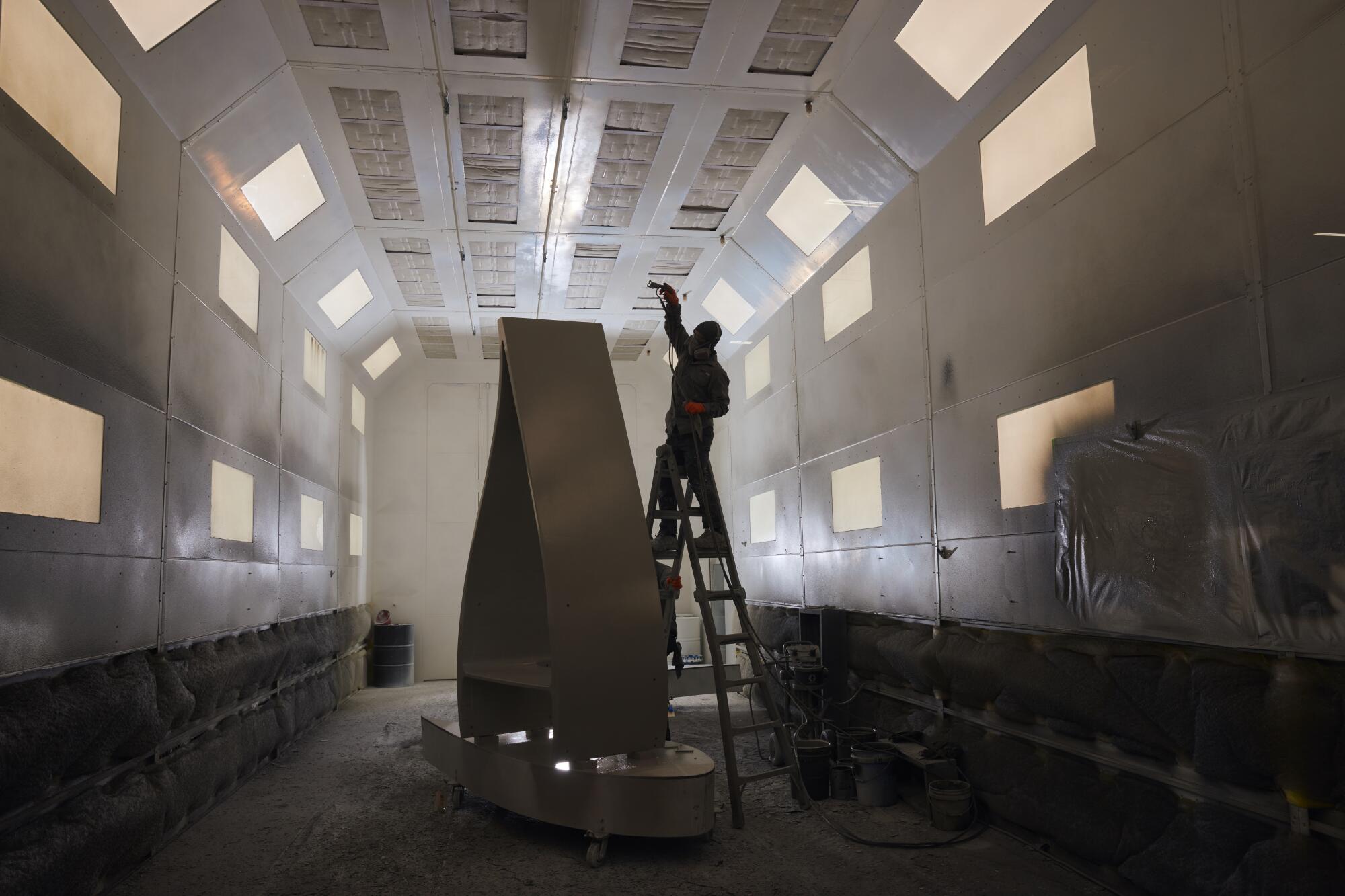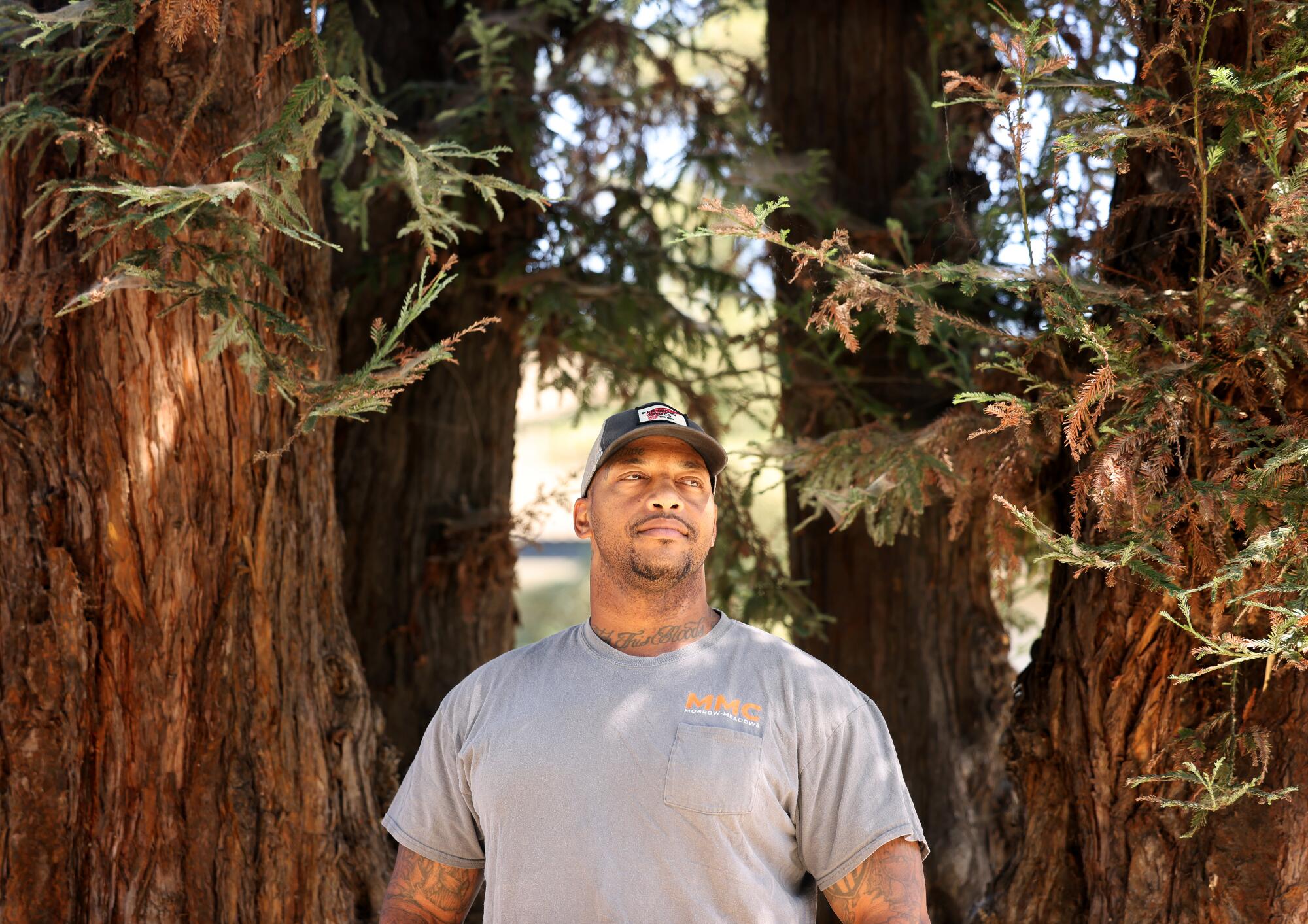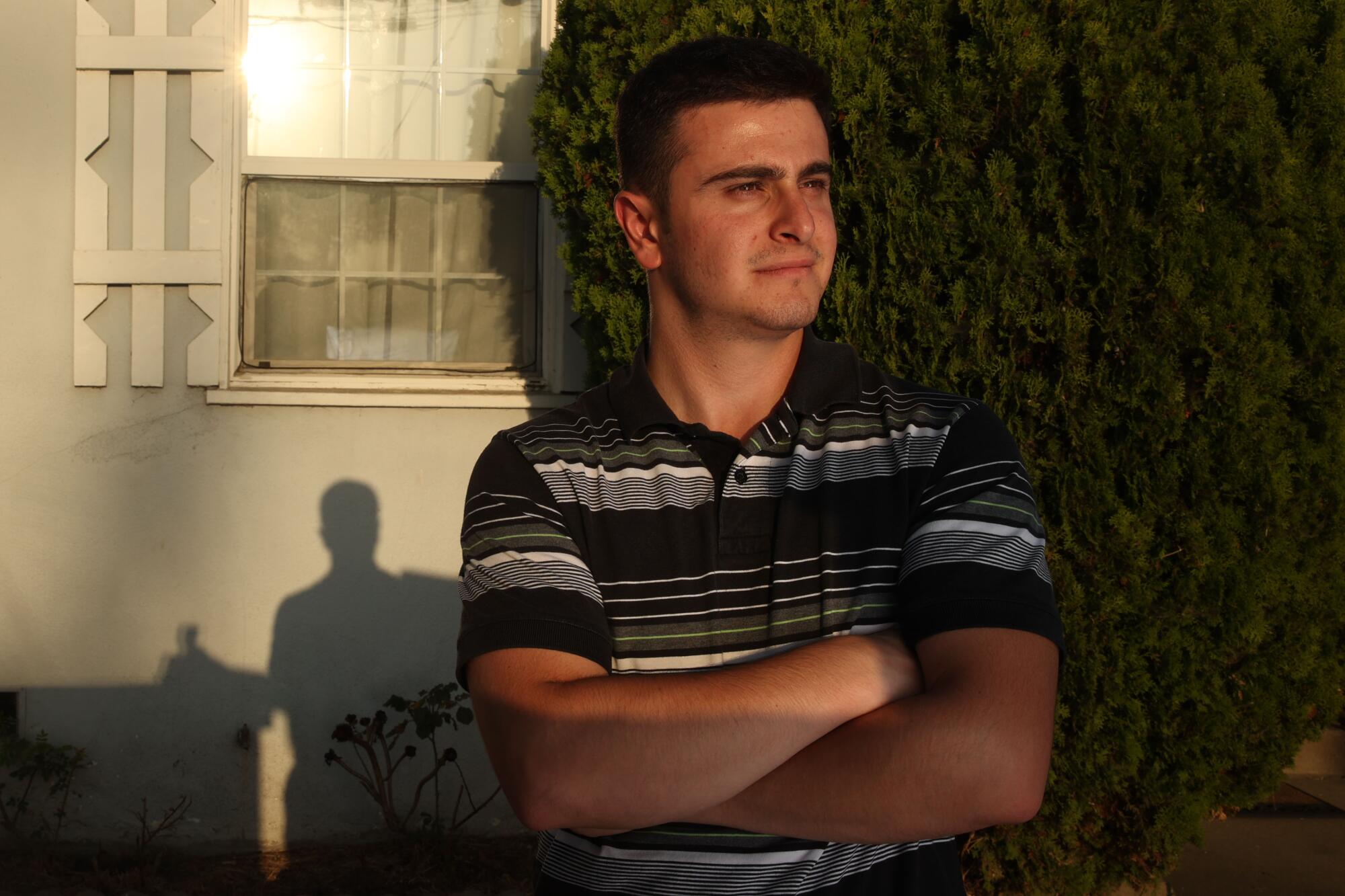
- Share via
No one knows just many green jobs will be created in the United States over the next decade, but there’s little disagreement that the demand will create a huge opportunity for the next generation of workers.
Thanks to the Inflation Reduction Act of 2022, an estimated $800 billion will flow from the federal government over the next 10 years to fund massive clean energy programs, from solar and wind installations to energy-efficient buildings to business and neighborhood microgrid power production. Billions more in state and federal money will help build out an electrified transportation system, including electric cars, trucks, trains and the infrastructure to support them.
High school and university educators are reporting increasing interest in “green” careers: jobs that help address global warming and other environmental issues, with enough of a future to pay the bills and then some. Given the drumbeat of bad news on a changing climate, it might even be considered a matter of survival.
The good news is that plenty of green jobs already exist: everything from electric vehicle and charger repair to solar panel installation to windmill construction; from public policy analysis and urban planning to software programming at electric utilities and alternative energy research.
“There’s a natural desire on the part of young folks to be in a cutting-edge field and also be motivated by the existential threat we’re all looking at and wanting to do something about it,” said Paul Feist, vice chancellor at California Community Colleges.
Here are the stories of four people making their way in the green economy.
‘I like the idea of making a greener environment’
Jeffrey Leyva is a sophomore at Cal State Long Beach’s electrical technology program and getting serious about planning a career. He knows one thing for certain: He wants to avoid anything that could be wiped out by artificial intelligence. “I worry that a lot of jobs will be taken by AI,” he said.
The 24-year-old, who is used to hard work, doesn’t want to sit at a desk all day. He works part time to put himself through college, and prefers physical demands to desk work. He had a job at a warehouse, doing heavy-duty lifting and taking inventory, but even that’s being taken over by computers and robots.
At school he came across a flier offering training in electric charger maintenance. Now there’s a job category that AI can’t do, he thought.
He signed up for free training at the Los Angeles Cleantech Incubator, or LACI, founded by the city of Los Angeles and its Department of Water & Power in 2011 to accelerate clean tech and job creation. The training led to work at Greenwealth Energy, a company that installs and maintains electric vehicle chargers at workplace parking lots, shopping malls, school districts, apartment buildings and the like.
“I assist the electricians, helping them install panels, the conduit, running wire through it, helping them activate it,” he said. He also goes on calls to replace copper wires ripped out by thieves.
The green nature of the job attracted him. “I wanted to help lessen the pollution in the air, lessen fossil fuels. I like the idea of making a greener environment.”
And the green revolution will require more charging stations: The Associated Press recently reported the Department of Energy estimated the U.S. “will need 1.2 million public chargers by 2030, a huge jump from the 175,000 public charging ports now available.”
The pay is decent, he said. Jobs like Leyva’s tend to pay around $20 an hour. “It’s manageable, it’s OK,” he said.
He considers it a starting point, with better-paying opportunities ahead. Training to be an electrician, maybe. “I love what I do, I like working hands-on. It’s rewarding when I finish and the job is complete,” he said.
‘Why not be part of the change now?’

Lekha Ajit, 22, grew up in southeast India, in the coastal city of Chennai along the Bay of Bengal. She was raised in an entrepreneurial family, “and I knew I didn’t want to do that, I didn’t want to take on the stress of an entire company.”
She came to the United States two years ago for a master’s degree in information systems at Cal State Los Angeles, and is employed at Navia Energy in San José, working on software to help utilities optimize production of renewable energy.
Her information systems skills “could be applied to professional corporate data analysis and web development,” she said. “But if [green energy] is going to be the future, why not be part of the change now?”
Many of her friends, fellow students, and co-workers feel the same, she said. “I think people are starting to incline toward green jobs. The younger generation wants to be associated with careers where they can work for a cause.”
Her advice to young people who are just entering the workforce and want a job that helps improve the environment: Don’t necessarily expect the perfect job right away. “Enter the door wherever you find the opportunity,” she said. “Just step in.”
‘We’re putting down guns and picking up tape measures’

Donald Trotter isn’t exactly young — he’s 37. He lost a big part of his youth when he served a seven-and-a-half-year prison term for assault with a firearm.
He grew up in South L.A. in a neighborhood rife with gangs and crime, he says. “I was messed-up, living in dysfunction. Violence was normal to me.”
Now he’s an electrician, making union wages, installing and maintaining solar panels, switch gear, transformers, and electric car chargers. And he’s a father. He and his wife live in downtown L.A., with two sons, ages 15 and 7.
He says his salvation began with John Elliott Harriel Jr., better known as Big John, who runs a program called 2nd Call that helps former prisoners and others who are in trouble. The group offers job training and development of life skills: dealing with past trauma, improving family relationships, what goes into being a good parent.
The Big John experience led to job training and apprenticeship with the International Brotherhood of Electrical Workers union, learning everything from the Pythagorean theorem to power line safety: “How a bird that sits on a power line doesn’t get hurt because he’s part of the circuit. But if you touch him it will kill you.”
He’s now working for Morrow-Meadows, a major West Coast electrical contractor, doing electric installation and maintenance work at the Intuit Dome in Inglewood. And although the installation of panels in California has decreased recently it should, in theory, pick up because of state legislation mandating that all electricity come from clean power sources by 2045.
“If I was speaking to the youth,” he said, “I’d tell them to take the opportunity to change their life. We’re putting down guns and picking up tape measures. That’s how we make change, one community at a time.”
‘I felt a strong desire to contribute to a more sustainable future’

Akram Abou Assaf, 23, grew up in Lebanon. “From a young age I was fascinated about the way things worked, especially electricity and energy,” he says.
He took a direct route through academia — a bachelor’s degree in electrical engineering at Lebanese International University, and then a master’s degree in the same subject at Cal State Los Angeles. “I was eager to find work opportunities with tech companies, particularly in California,” he said. “This move [from Lebanon] allowed me to immerse myself in a vibrant tech community and pursue my passion for technology and innovation.”
He added two courses at Los Angeles Cleantech Incubator’s free green jobs workforce development programs and landed a full-time gig melding real-world data into computer simulations to help integrate new energy sources with the electric grid.
“Right now my position is an energy specialist in renewable energy and power systems,” he said. He works for a global company called ETAP, an arm of France’s Schneider Electric, which helps electrical providers manage integration of renewables.
“My job is finding data to make sure everything is running smoothly,” said Assaf, who lives in Montebello. “When [power providers] add renewable energy sources, we make sure there’s no fault.”
As he went about his studies, climate change was heavy on his mind. “I felt a strong desire inside to contribute to a more sustainable future, to combine my passion for technology with my commitment to stewardship.”
His advice to the next generations: “Never underestimate the power of curiosity and persistence. Embrace a lifelong journey and stay informed about the latest developments in environmental science and technology.”
And don’t expect to change the world overnight. “Every effort, even if small, can lead to a greener world. Small changes can lead to great impact.”








